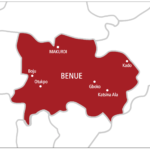THE Lagos Chamber of Commerce and Industry (LCCI) says the persisting Russia-Ukraine war will trigger shocks in the manufacturing and agricultural sectors in the second quarter of 2022.
Dr Michael Olawale-Cole, President, LCCI, said this at the LCCI Quarterly press conference on the state of the Nigerian economy on Tuesday in Lagos.
Olawale-Cole said the ongoing war triggered a positive oil price shock with spillover effects on operating costs, raw materials, and inflation in countries not directly engaged in the war.
He noted that Nigeria was not an exception as prices of goods and services were moving northwards with the potential implication of shrinking production of goods and services.
The LCCI president stressed that should the conditions persist, production volumes would be impacted by the raw materials supply chain disruptions, the rising cost of diesel, and other internal security crises.
“Job losses are also very likely due to constrained production and disrupted supply chains and all of these will likely depress growth potential in Q2 2022.
“Going into the second quarter of 2022, the manufacturing sector will likely suffer some shocks from the rising cost of diesel, logistics, foreign exchange illiquidity, domestic inflationary pressure, weakening purchasing power, poor public infrastructure and port-related challenges.
“These may continue to present as headwinds to the sector’s performance.
ALSO READ FROM NIGERIAN TRIBUNE
“Additionally, with the war in Ukraine aggravating disruptions to supply chains of raw materials like wheat, barley, soybeans, sunflower, and corn, the rising cost of production may not abate soon,” he said.
Looking forward to the second quarter, he said Nigerians should expect headline inflation to remain elevated.
This, he said, would be due to supply chain disruptions caused by the Russia-Ukraine war, food supply shocks, FX policies, higher energy costs, FX illiquidity, and heightened insecurity in major food-producing states, which would continue to mount pressure on consumer prices.
“We believe a broad-based harmonisation of fiscal and monetary policies toward addressing the identified structural constraints will significantly help moderate inflationary pressure in the short term,” he said.
Olawale-Cole urged the government to adopt the most sustainable solution of boosting local production of food staples to levels that met local demands.
WATCH TOP VIDEOS FROM NIGERIAN TRIBUNE TV
- Let’s Talk About SELF-AWARENESS
- Is Your Confidence Mistaken for Pride? Let’s talk about it
- Is Etiquette About Perfection…Or Just Not Being Rude?
- Top Psychologist Reveal 3 Signs You’re Struggling With Imposter Syndrome
- Do You Pick Up Work-Related Calls at Midnight or Never? Let’s Talk About Boundaries






